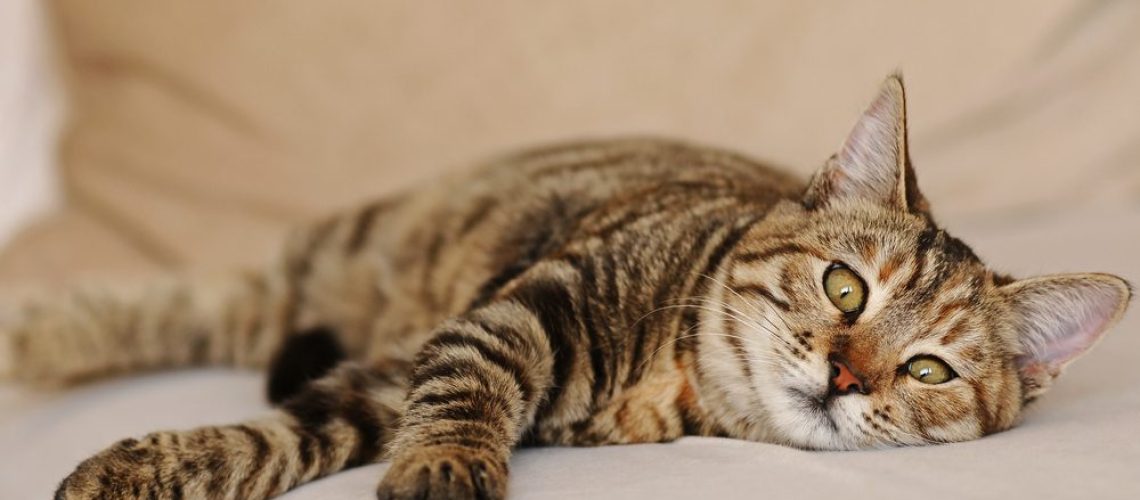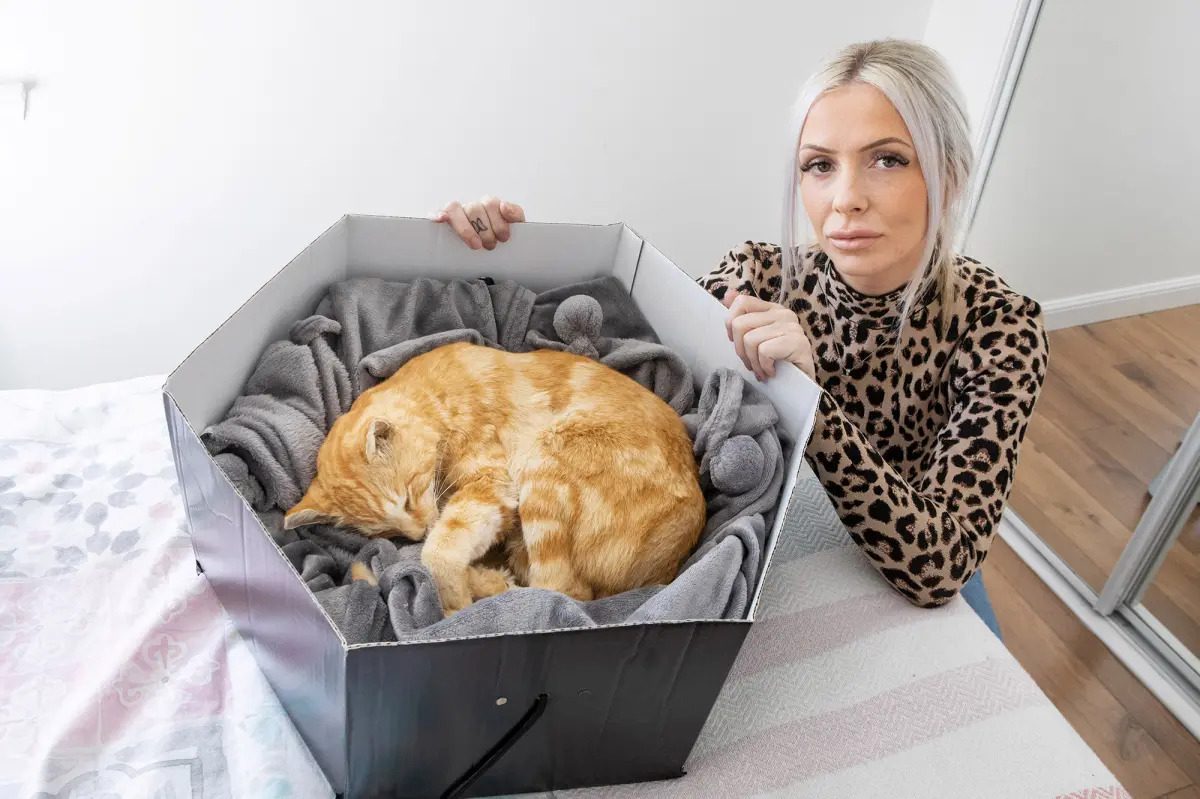Introduction:
Losing a beloved pet can be one of the most heartbreaking experiences we go through in life. It's a difficult and painful time, filled with overwhelming emotions and a sense of loss that can feel unbearable. But here's the thing: understanding how to navigate this heartbreak is crucial for our own healing and well-being. By delving into this subject, you'll discover valuable ways to cope with the grief and find solace during this challenging time. Whether you're currently facing the loss of your feline friend or simply want to be prepared for when that moment comes, this guide will provide you with essential insights and practical advice on what to do when your cat passes away at home.
Now, let's embark on this journey together as we explore the depths of our emotions and discover the path towards healing. Remember, you're not alone in this experience, and by understanding how to navigate it, you can find comfort and peace amidst the pain. So, let's dive in and uncover the tools that will help us honor our furry companions while finding solace in their memory.
Key Takeaways:
- Grieving the loss of a cat is a normal and natural process that should be acknowledged and allowed.
- Creating a peaceful and comfortable environment for your cat during their final moments can provide comfort for both you and your pet.
- Consider reaching out to a veterinarian for guidance on how to handle the passing of your cat at home, as they can offer advice and support.
- Take time to memorialize your cat in a way that feels meaningful to you, such as creating a tribute or planting a tree in their memory.
- Seeking support from friends, family, or online communities who have experienced similar losses can provide solace during this difficult time.
Understanding the Passing of Your Cat at Home
What happens when your cat passes away at home?
When your beloved cat passes away at home, it can be a difficult and emotional experience. You may feel a mix of sadness, confusion, and even guilt. It's important to know what to expect during this time.
Firstly, your cat's body will become still and lifeless. They may release bodily fluids or have muscle spasms. This can be distressing to witness, but it is a natural part of the process. Over time, their body will begin to cool down as they enter rigor mortis.
How do I handle my cat's remains?
After your cat has passed away, you have several options for handling their remains. You can choose to bury them in your yard if local regulations allow it. Make sure to dig a deep enough hole so that other animals cannot disturb the grave.
If burial is not an option or if you prefer an alternative, you can also consider cremation. Cremation involves the process of reducing your cat's body to ashes. You can keep these ashes in an urn or scatter them in a meaningful location.
Coping with the Heartbreak of Losing Your Beloved Cat
Grieving the loss of your cat
Losing a beloved pet like a cat can be incredibly heartbreaking. The grief you feel is real and valid. It's important to allow yourself time and space to grieve in whatever way feels right for you.
You might find yourself experiencing a range of emotions such as sadness, anger, guilt, or even denial. These feelings are normal and part of the grieving process. It's okay to cry and express your emotions openly.
Remembering the good times
One way to cope with the heartbreak of losing your cat is to focus on the happy memories you shared. Take some time to reflect on all the joy and love your cat brought into your life. Look through old photos or write down your favorite memories in a journal.
You can also create a special tribute for your cat, such as a scrapbook or a photo collage. This can be a comforting way to honor their memory and keep them close to your heart.
Why Taking Care of Your Emotional Well-being Matters When Your Cat Passes Away
The importance of self-care during this difficult time
When your cat passes away, it's easy to neglect your own emotional well-being while dealing with grief. However, taking care of yourself is crucial during this difficult time.
Make sure to prioritize self-care activities that bring you comfort and peace. This could include taking walks in nature, practicing mindfulness or meditation, spending time with loved ones, or engaging in hobbies that you enjoy.
Talking about your feelings
It's important not to bottle up your emotions when coping with the loss of your cat. Find someone you trust, whether it's a friend, family member, or therapist, and talk about how you're feeling. Sharing your thoughts and emotions can provide relief and support during this challenging period.
Honoring and Remembering Your Cat: Meaningful Ways to Pay Tribute
Creating a memorial for your cat
A meaningful way to honor and remember your beloved cat is by creating a memorial for them. This can be done in various ways depending on what feels right for you.
- Create a special corner in your home with your cat's photo, their favorite toys, and a candle to light in their memory.
- Plant a tree or flowers in your yard as a living tribute to your cat.
- Donate to a local animal shelter or charity in your cat's name.
Sharing stories and memories
Another beautiful way to pay tribute to your cat is by sharing stories and memories of them. Reach out to friends and family who knew your cat and ask them to share their favorite memories as well.
You can also create an online memorial for your cat on social media or pet memorial websites. This allows you to share photos, stories, and thoughts about your beloved feline companion with others who understand the pain of losing a pet.
Seeking Support: Resources to Help You Cope with the Loss of Your Pet
Support groups and counseling
If you're struggling to cope with the loss of your cat, consider seeking support from pet loss support groups or grief counseling services. These resources are specifically designed to help individuals navigate the difficult emotions that come with losing a beloved pet.
In these groups or sessions, you'll find people who have experienced similar losses and can offer understanding and empathy. They can provide guidance on coping strategies and offer comfort during this challenging time.
Books and online resources
There are many books and online resources available that address pet loss grief. These resources can provide guidance, comfort, and validation for what you're going through. Some recommended books include "The Loss of a Pet" by Wallace Sife and "Goodbye, Friend: Healing Wisdom for Anyone Who Has Ever Lost a Pet" by Gary Kowalski.
Additionally, websites and online forums dedicated to pet loss provide a safe space for sharing stories, seeking advice, and finding solace in the company of others who have experienced similar losses.
Creating a Comforting Home Environment After the Loss of Your Cat
Allow yourself time to adjust
After your cat has passed away, it's important to give yourself time to adjust to their absence. It's normal to feel their absence deeply in your home, and it may take some time before you're ready to make changes.
Avoid rushing into major changes such as rearranging furniture or getting a new pet right away. Take the time you need to process your emotions and come to terms with the loss before making any significant changes to your home environment.
Cleaning and decluttering
When you're ready, cleaning and decluttering your home can help create a sense of peace and renewal after the loss of your cat. Start by removing any reminders that may cause unnecessary pain or trigger memories that are too difficult at this stage.
If there are items that hold special sentimental value, consider storing them in a safe place until you feel ready to revisit them without overwhelming sadness. Cleaning can also be therapeutic as it allows you to physically remove traces of your cat's presence while creating a fresh start for yourself.
Grieving the Loss of Your Cat: Dealing with Guilt and Sadness
Coping with guilt
It's common for pet owners to experience feelings of guilt after their cat passes away. You may question if you did enough or made the right decisions regarding their care. It's important to remember that these feelings are normal but often unwarranted.
Remind yourself that you provided love, care, and a safe home for your cat. Focus on the positive memories and the joy you brought to each other's lives. If guilt becomes overwhelming, consider seeking support from a therapist or a pet loss support group to help you work through these emotions.
Allowing yourself to grieve
Grieving the loss of your cat is an essential part of healing. Allow yourself to feel sad and mourn their absence. It's okay to cry, talk about your feelings, or take time alone to reflect.
Remember that everyone grieves differently, so don't compare your process to others. Give yourself permission to grieve in your own way and at your own pace. Be patient with yourself as healing takes time.
Losing a beloved cat can be incredibly painful. Remember to take time to grieve, seek support from loved ones, and cherish the memories you shared with your furry friend.
How do I stop being sad when my cat dies?
Avoid dwelling on the final moments you had with your pet, as it is natural to constantly think about their last days or moments, especially if they were distressing. Instead, concentrate on the time you spent together with your pet and cherish the happy memories you shared. Keep in mind that your pet is no longer in pain.
How long will I be sad after my cat dies?
Grief does not follow a set timeline and it is important to remember that it takes as long as it takes. Furthermore, every individual experiences loss differently and may go through a range of emotions. Feeling sad, anxious, tired, guilty, or relieved is all part of the normal grieving process.
Why can't I stop crying after losing a pet?
It is important to recognize that it is natural to cry over the loss of a pet. It is a normal part of the grieving process and is necessary for healing. Many people have experienced the comfort and joy that animals bring, so when we lose a pet, it can feel like a part of ourselves is dying.
Why is losing a pet so painful?
The reason why the loss of a pet is extremely painful is because of the unconditional and accepting love that animals provide. Additionally, the loss affects various aspects of people's lives, making it a significant loss that impacts every facet of life.
Why do I feel guilty after my cat died?
Many pet owners experience guilt when they feel responsible for their pet's condition, even if they couldn't have done anything to prevent it.
What not to say when a pet dies?
It is inappropriate and insensitive to say things like "Now you can get a new pet!" or "When are you getting a new puppy?" to someone who has recently experienced the loss of a pet. It is important to allow for a period of grief and healing before considering getting another pet.

















